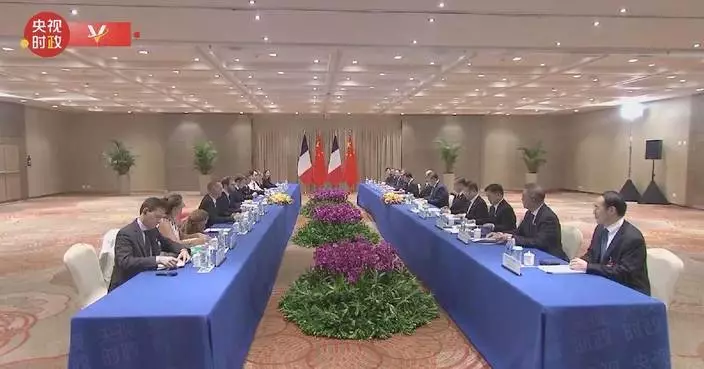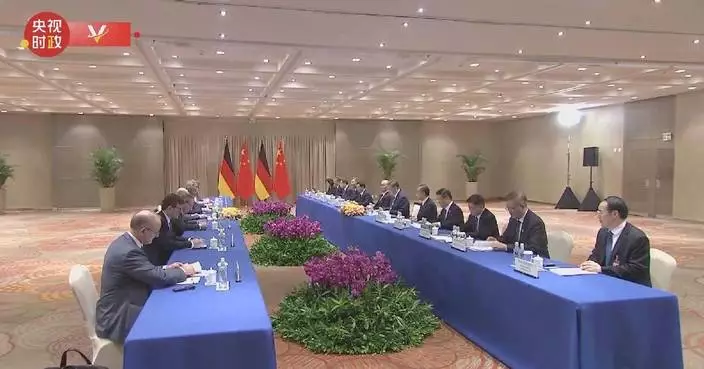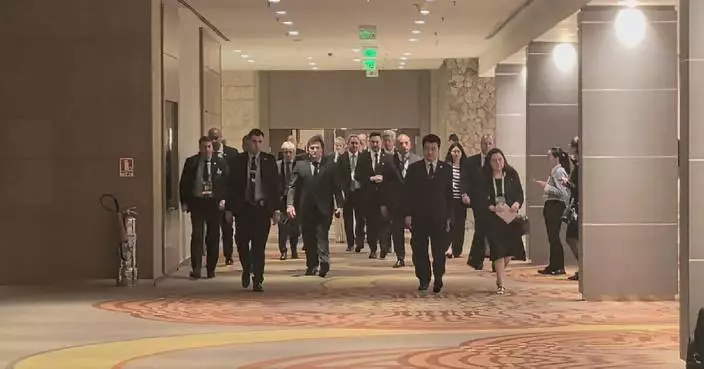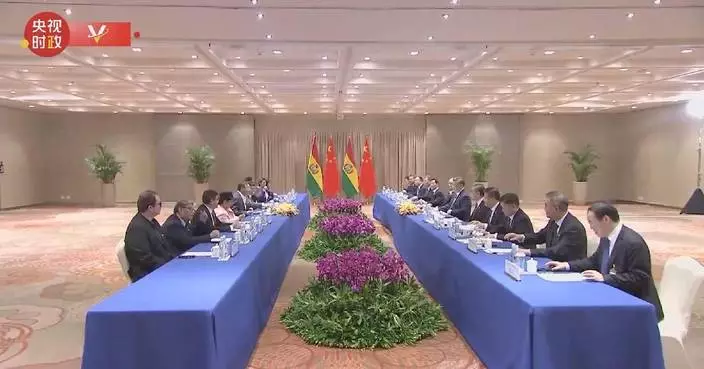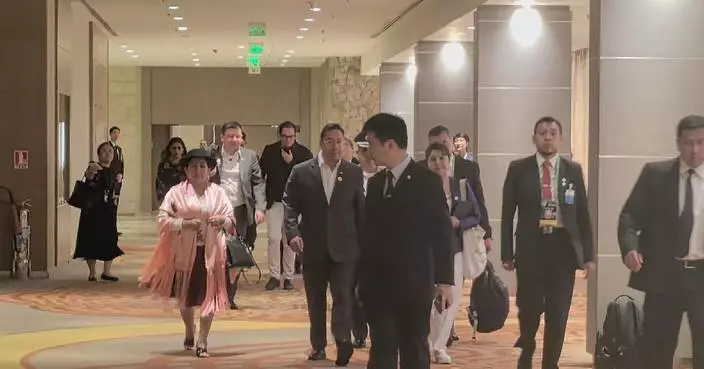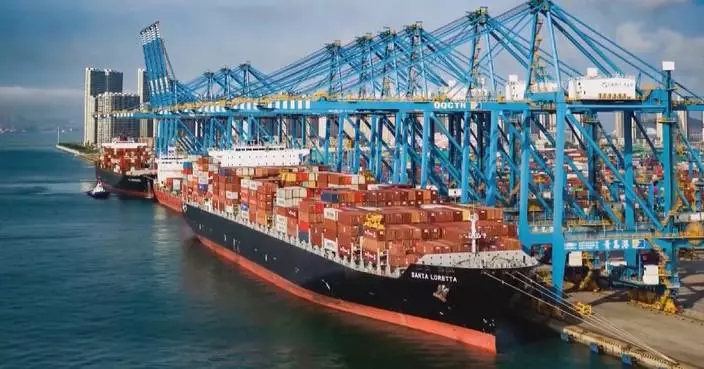Chinese Foreign Minister Wang Yi on Monday met with Russian Foreign Minister Sergei Lavrov in Rio de Janeiro, Brazil.
Wang, also a member of the Political Bureau of the Communist Party of China Central Committee, said that this year marks the 75th anniversary of the establishment of China-Russia diplomatic ties and is also a year witnessing fresh progress in bilateral ties in various fields in spite of risks and challenges.
He once again extended congratulations on Russia's successful hosting of the 16th BRICS Summit, which opens a new chapter of greater BRICS cooperation. During their talks on the sidelines of the Kazan Summit, President Xi Jinping and President Vladimir Putin made a strategic plan for the development of bilateral relations in the next stage, Wang said.
China is willing to work with Russia to further strengthen cooperation and alignment, and promote China-Russia comprehensive strategic coordination so as to make due contributions to the development and revitalization of their respective countries as well as the reform of global governance, he said.
Wang said China and Russia should work with BRICS partners to follow through on the results of the Kazan Summit, expand and strengthen the BRICS mechanism, and enhance the influence of the Global South, so that they can play a greater role in pushing for a multipolar world.
China has assumed the presidency of the Shanghai Cooperation Organization (SCO) and is ready to work closely with Russia for the growth of SCO and help lift it to a higher level, he said.
Next year marks the 80th anniversary of the victory of the World Anti-Fascist War. China and Russia will jointly organize commemorative activities and firmly safeguard the outcome of the victory of World War II and international equity and justice as part of their efforts to learn from the history and usher in the future, he said.
Lavrov said that Russia-China relations now stand at an unprecedented high level and that the two heads of state have maintained close exchanges and set new goals for cooperation.
Russia-China relations have always been based on the principles of equality, mutual benefit and win-win, which are in line with the interests of the two peoples and are supported by Global South countries, he said.
Lavrov thanked China for its support for Russia's chairmanship of the BRICS, saying that Russia will actively support China's role as the presidency of the SCO. Russia is willing to continue to strengthen cooperation with China within multilateral mechanisms such as the G20, APEC and the United Nations (UN), he added.
The United Nations is the most important achievement of the victory of World War II, and it is of great significance to commemorate the 80th anniversary of the founding of the United Nations next year, he said.
The international community should take this opportunity to oppose any behaviors that undermine the post-war international order and jointly safeguard world peace and stability, he said.
The two sides also exchanged views on issues such as the Ukraine crisis and the situation on the Korean Peninsula.
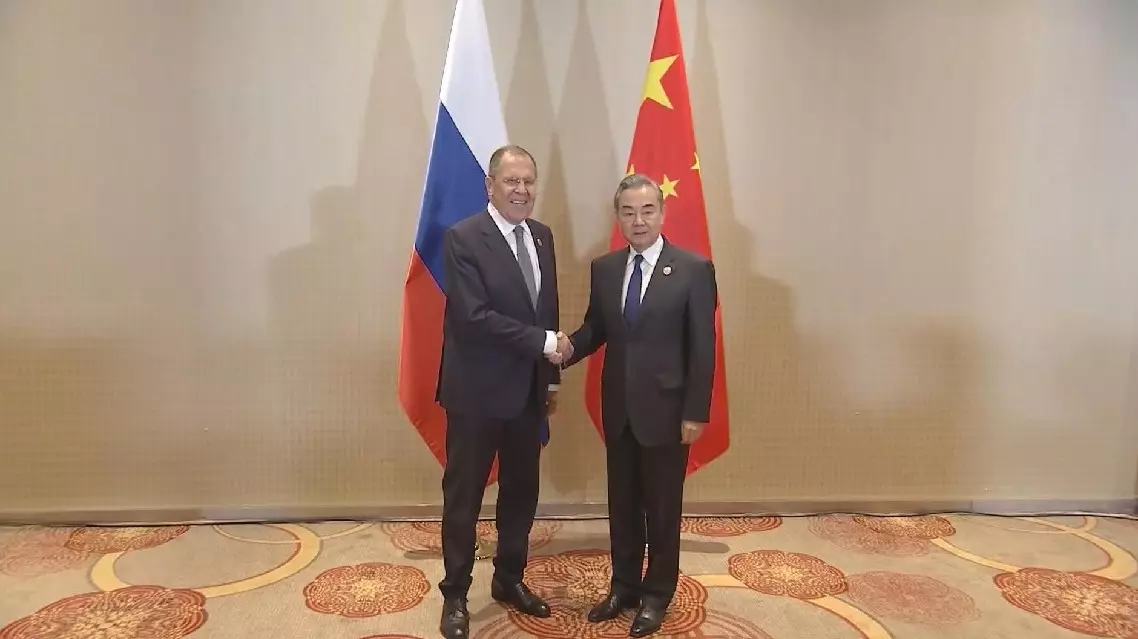
Chinese, Russian FMs discuss ties in Rio de Janeiro
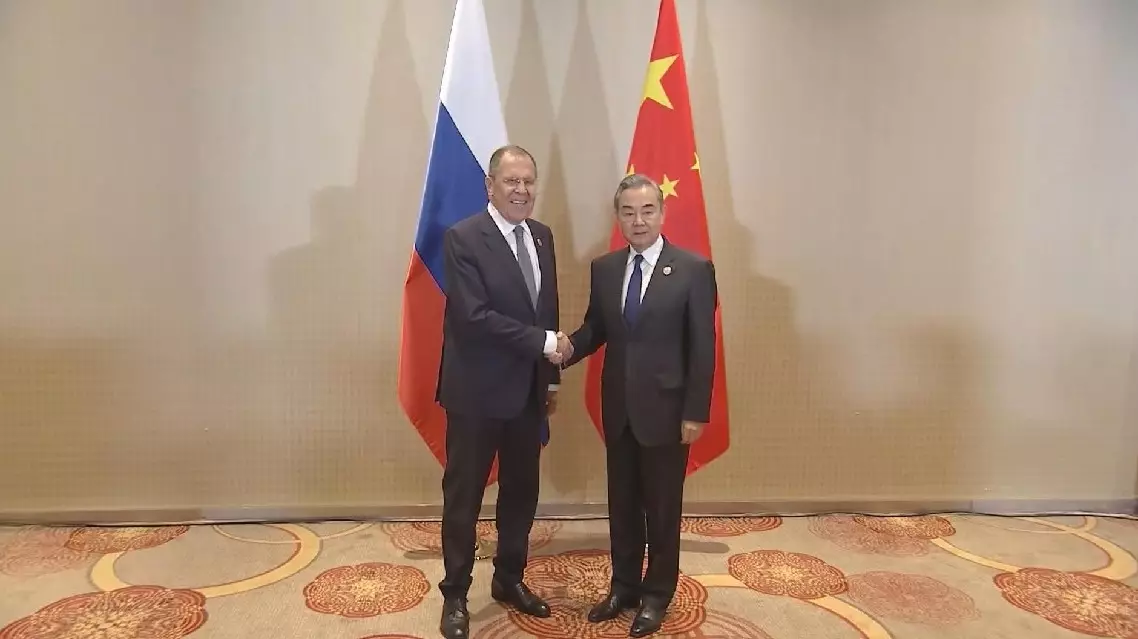
Chinese, Russian FMs discuss ties in Rio de Janeiro
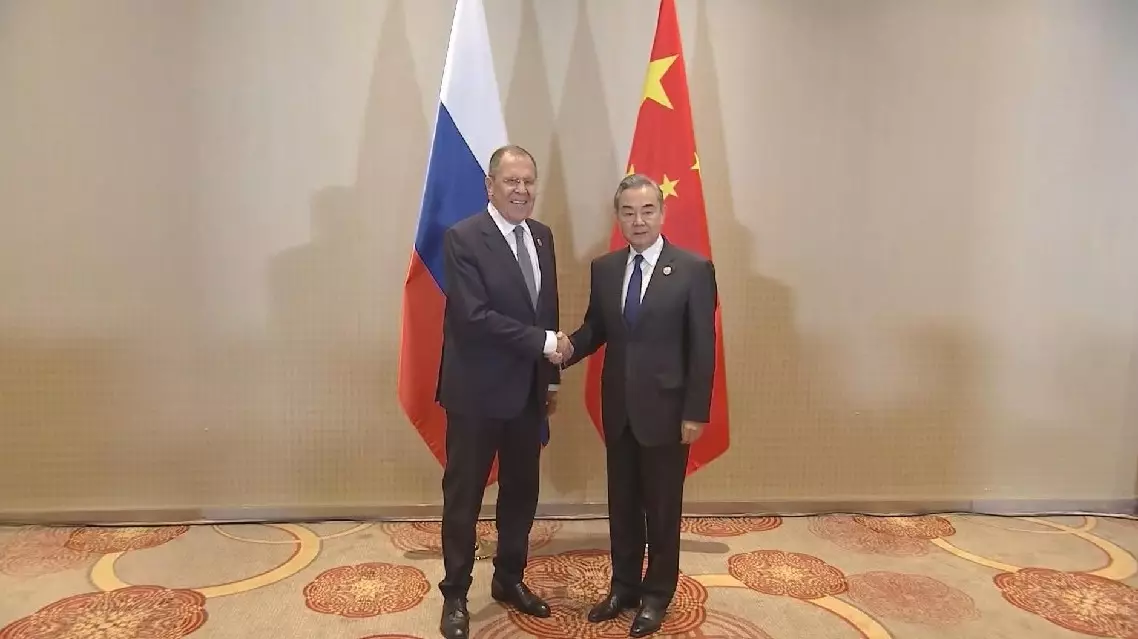
Chinese, Russian FMs discuss ties in Rio de Janeiro
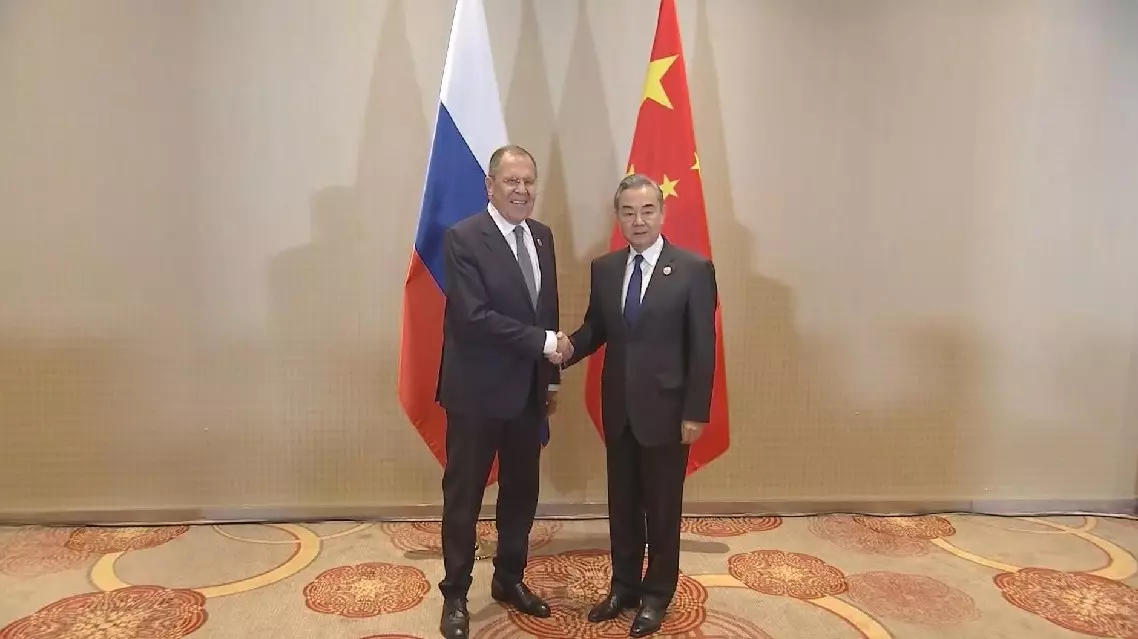
Chinese, Russian FMs discuss ties in Rio de Janeiro
Chinese Foreign Minister Wang Yi and Subrahmanyam Jaishankar, India's external affairs minister, held talks on improving bilateral relations in Rio de Janeiro on Monday.
Wang, also a member of the Political Bureau of the Communist Party of China Central Committee, said that the successful meeting between President Xi Jinping and Prime Minister Narendra Modi in Kazan not long ago and the restart of China-India relations are in line with the fundamental interests of the two peoples, the expectations of Global South countries and the right direction of history.
The two sides should implement the important consensus reached by the two heads of state, respect each other's core interests, enhance mutual trust through dialogue and communication, handle differences properly with sincerity and integrity, and bring the bilateral relationship back on the track of stable and sound development at an early date, Wang said.
The two sides should send more positive signals and engage in actions that facilitate bilateral exchanges, enhance mutual trust and reduce suspicion, and carry out more cooperation and reduce attrition, Wang said.
The two sides should strive to make practical progress in such issues as resuming direct flights, exchanging journalists and easing visa procedures as soon as possible, he said.
Noting that next year marks the 75th anniversary of diplomatic ties between China and India, Wang said the two sides should plan commemorative activities, and encourage exchanges and visits in various fields and at different levels to enhance understanding and mutual trust.
Wang said China and India, as two neighboring major developing countries, have more common interests than differences, and they should view each other's development as an opportunity and work together to achieve common development and rejuvenation, which will help safeguard the legitimate rights and interests of developing countries and contribute to global multipolarity.
Both China and India adhere to a non-aligned foreign policy and multilateralism, and support the democratization of international relations, Wang said, adding that the two countries should continue to strengthen coordination and cooperation in international affairs and further develop mechanisms such as BRICS and the Shanghai Cooperation Organization.
For his part, Jaishankar said during the BRICS Summit in Kazan, leaders of both countries reached a consensus on promoting the stable development of India-China relations, and expressed satisfaction with the progress made to implement the leaders' consensus.
India hopes to restart relevant dialogue mechanisms swiftly and maintain the momentum for improving and developing bilateral relations through strengthened communication, he said.
The consensus between India and China far outweighs the differences. Both sides should view bilateral relations from a strategic perspective, properly handle relevant issues with a more positive attitude, and not let specific disagreement dominate bilateral ties, he added.
Jaishankar said the Indian side is willing to take the 75th anniversary of diplomatic ties between the two countries next year as an opportunity to push forward India-China relations.
As key players in international affairs, both countries demonstrate the potential for cooperation, Jaishankar said, adding that India opposes unilateralism, rejects military alliances, supports the democratization of international relations and is ready to strengthen coordination and cooperation with China within multilateral platforms like the G20 and BRICS.
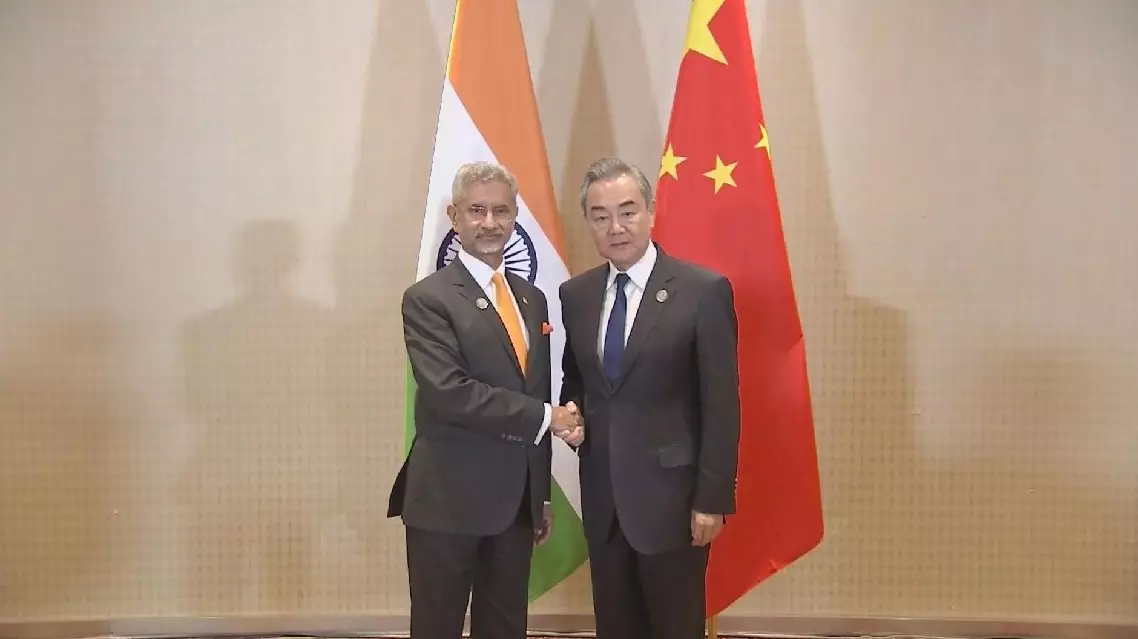
Chinese, Indian FMs meet on bilateral ties
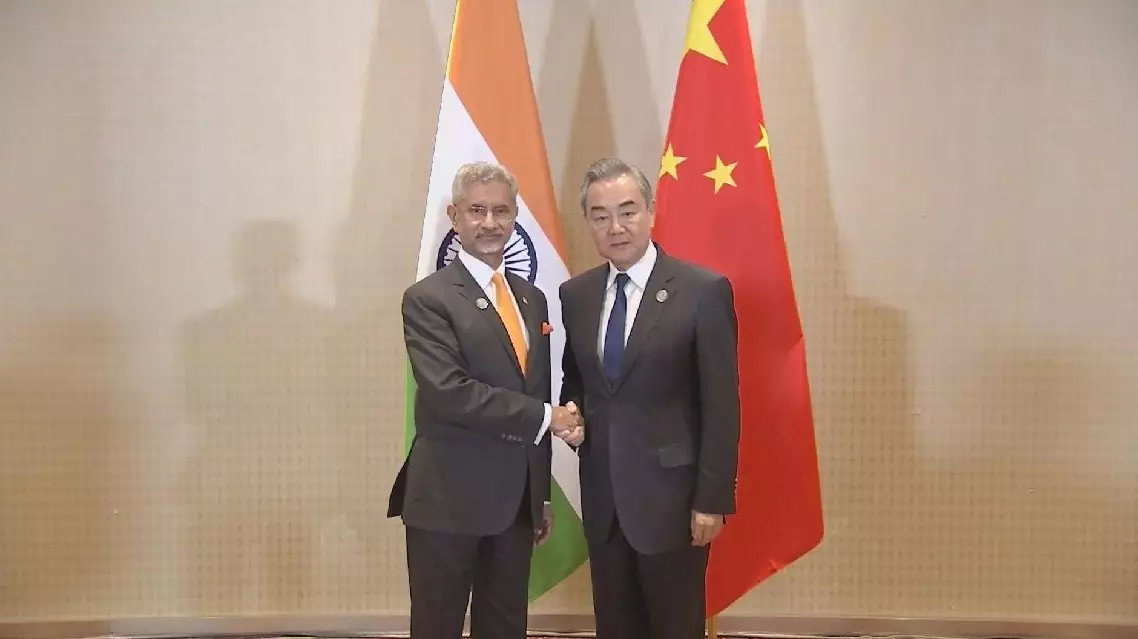
Chinese, Indian FMs meet on bilateral ties
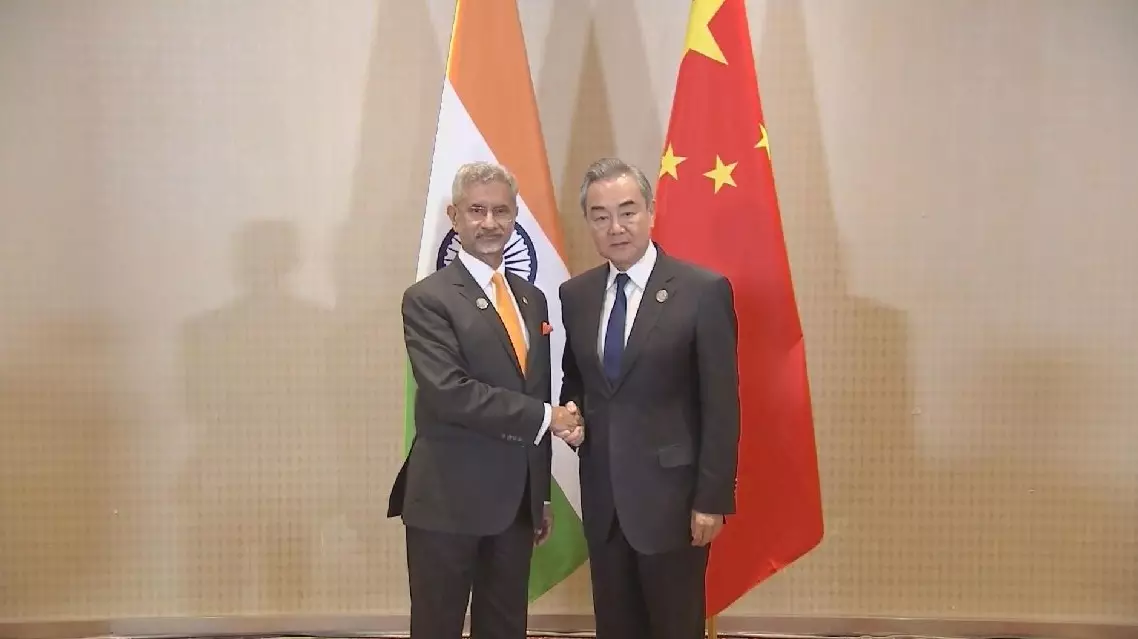
Chinese, Indian FMs meet on bilateral ties









